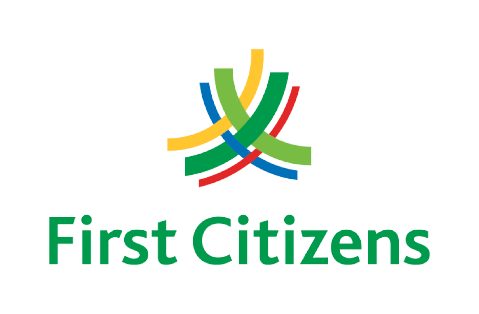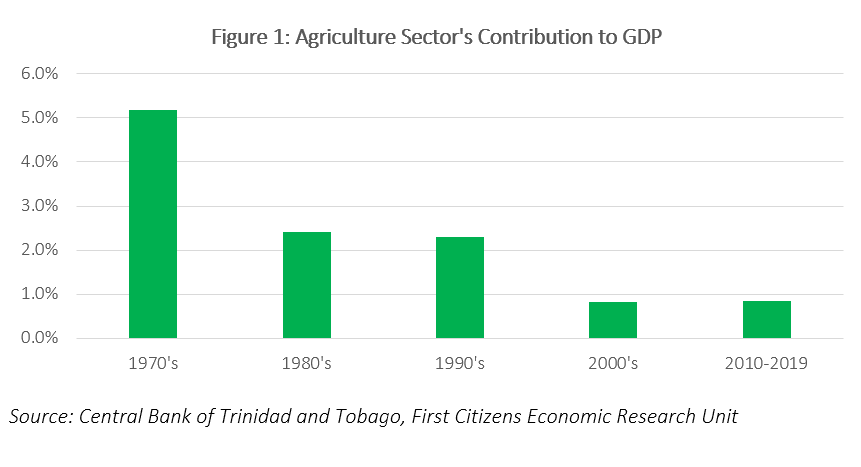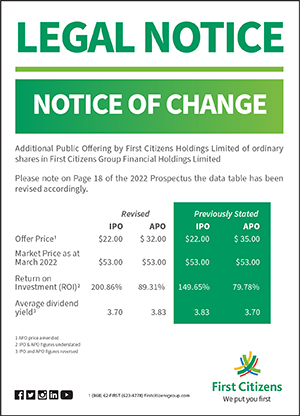Agriculture: Attaining Food sustainability in T&T
Commentary

Historically, agriculture has served as a major foreign exchange earner for many Caribbean countries. Banana, sugarcane and nutmeg reigned supreme in international markets and were deemed highly profitable mainly due to the Europe’s preferential trade agreements. However, in early 1990’s, the preferential trade agreements between the Caribbean and Europe were gradually dissolved, thus ending an era of the Caribbean’s agricultural dominance. Although the sector is still of importance to countries such as Dominica and Guyana, the Caribbean Community (CARICOM) largely transitioned into a tourism- and manufacturing-dependent region. The current pandemic has forced the world into partial shutdown whereby many major manufacturing industries halted production, countries closed their borders and international airlines were grounded, greatly affecting imports and exports as well as travel and tourism. Although food security has always been a burning issue, the Covid-19 pandemic has further underscored its importance.
From a historical perspective, the agriculture sector in Trinidad and Tobago (T&T) has steadily declined, with its contribution to GDP falling from 5.2% in the 1970’s to an average of just under 1% since 2010. In 1987, the agriculture sector accounted for a significant 12% of total employment in T&T, however, as the economy transitioned to one that is largely energy-based, the sector’s share of employment fell to just 3.8% by 2018. The consistent decline in the agriculture sector was accompanied by an increasing food import bill which now stands at over TTD4 billion.

The World Food Programme (WFP) has warned of alarming global hunger and food insecurity, with the number of people “marching towards starvation” spiking from 135 million to 270 million as the pandemic unfolds, noting that 2021 will be catastrophic with famine potentially on the horizon. T&T, a country with a population of approximately 1.395 million, depends heavily on two main source markets for food imports. The United States and The United Kingdom provide over 50% of this country’s imported food products – a precarious position, given the recent disruptions to supply chains globally. This was echoed in the National Budget presented for fiscal year 2021, as the Minister of Finance has prioritized food security as a national objective and is committed to insulating the economy against the impact of shortages and such supply chain disruptions. The fall in the global demand for oil and gas as well as the less favourable longer-term view of the industry, may provide the opportunity for T&T to look into sustainable agriculture which can reduce the import bill, improve the country’s food security, propel economic diversification as well as create employment.
Farming has changed drastically within the last 100 years whereby traditional methods are now being replaced by more scientific approaches to ensure healthier livestock, higher yields and a greater resistance to diseases and pests. Utilizing modernized farming techniques would boost productivity, thus reducing wastage. This can lead to the reduction in carbon footprint and can minimize the overuse of pesticides and fertilizers.
Farmers now have access to new technology such as aerial images from satellites or drones, weather forecasts and soil sensors which is making it possible to manage crop growth in real time. Automated systems would provide early warnings of any deviation from normal growth or other factors. This measure was effectively implemented in Nigeria, where they were able to measure and analyze soil data. Temperature, nutrients, and vegetative health were monitored to help farmers apply the right fertilizers and optimally irrigate their farms. This allowed farmers to limit input, increase productivity, reduce waste and be more cost efficient.
Strengthening Caribbean inter-regional trade is another avenue to improve food security as well as to increase foreign exchange earnings. According to the International Monetary Fund (IMF), improving regional integration- for instance, through more intraregional trade and policy coordination- can help the region’s small-sized economies build greater resilience and scale, as well as enhance bargaining power on the global scale. The removal of tariff and non-tariff barriers to trade and constraints on intraregional labor movement would lead to the ability to specialize and compete in the globalized environment.
Financing remains one of the main constraining factors where the development of the agricultural sector is concerned. However, numerous incentives were brought forward in the T&T 2021 Budget statement which included a TTD500 million-dollar stimulus package as well as enhanced training, technical support and research. This may be the impetus necessary for the revamping of national food production and to sustainably decrease our dependence on imported food.
Praedial larceny which is widely defined in the Caribbean region as the theft of agricultural produce, is another constricting factor to the development of the sector. Farmers incur significant economic cost which discourages further investments into the sector. The Praedial Larceny Squad (PLS) was established in November 2013 in T&T and according to the Ministry of Agriculture, Land and Fisheries, is tasked with the responsibility of implementing various interdiction and suppression strategies including patrols, surveillance, arrests and prosecutions to help reduce the occurrence of praedial larceny. Crop insurance is another avenue that can be explored to mitigate financial losses for farmers during droughts, floods or even poor crop yield. Several countries including India and The United States offer subsidized insurance coverage to farmers against financial losses caused by varying circumstances including adverse weather and market conditions.
The United Nations predicted that by 2050, food production has to increase by 70% to feed the world population which would stand at approximately 9.1 billion. Although there is no single solution to the challenge of food security, T&T as well as the Caribbean region will need to implement effective and technologically-driven systems and procedures to ensure that in the event of any calamitous situation, we can rely on a steady food supply from a robust domestic agriculture sector.
DISCLAIMER
First Citizens Bank Limited (hereinafter “the Bank”) has prepared this report which is provided for informational purposes only and without any obligation, whether contractual or otherwise. The content of the report is subject to change without any prior notice. All opinions and estimates in the report constitute the author’s own judgment as at the date of the report. All information contained in the report that has been obtained or arrived at from sources which the Bank believes to be reliable in good faith but the Bank disclaims any warranty, express or implied, as to the accuracy, timeliness, completeness of the information given or the assessments made in the report and opinions expressed in the report may change without notice. The Bank disclaims any and all warranties, express or implied, including without limitation warranties of satisfactory quality and fitness for a particular purpose with respect to the information contained in the report. This report does not constitute nor is it intended as a solicitation, an offer, a recommendation to buy, hold, or sell any securities, products, service, investment or a recommendation to participate in any particular trading scheme discussed herein. The securities discussed in this report may not be suitable to all investors, therefore Investors wishing to purchase any of the securities mentioned should consult an investment adviser. The information in this report is not intended, in part or in whole, as financial advice. The information in this report shall not be used as part of any prospectus, offering memorandum or other disclosure ascribable to any issuer of securities. The use of the information in this report for the purpose of or with the effect of incorporating any such information into any disclosure intended for any investor or potential investor is not authorized.
DISCLOSURE
We, First Citizens Bank Limited hereby state that (1) the views expressed in this Research report reflect our personal view about any or all of the subject securities or issuers referred to in this Research report, (2) we are a beneficial owner of securities of the issuer (3) no part of our compensation was, is or will be directly or indirectly related to the specific recommendations or views expressed in this Research report (4) we have acted as underwriter in the distribution of securities referred to in this Research report in the three years immediately preceding and (5) we do have a direct or indirect financial or other interest in the subject securities or issuers referred to in this Research report.

